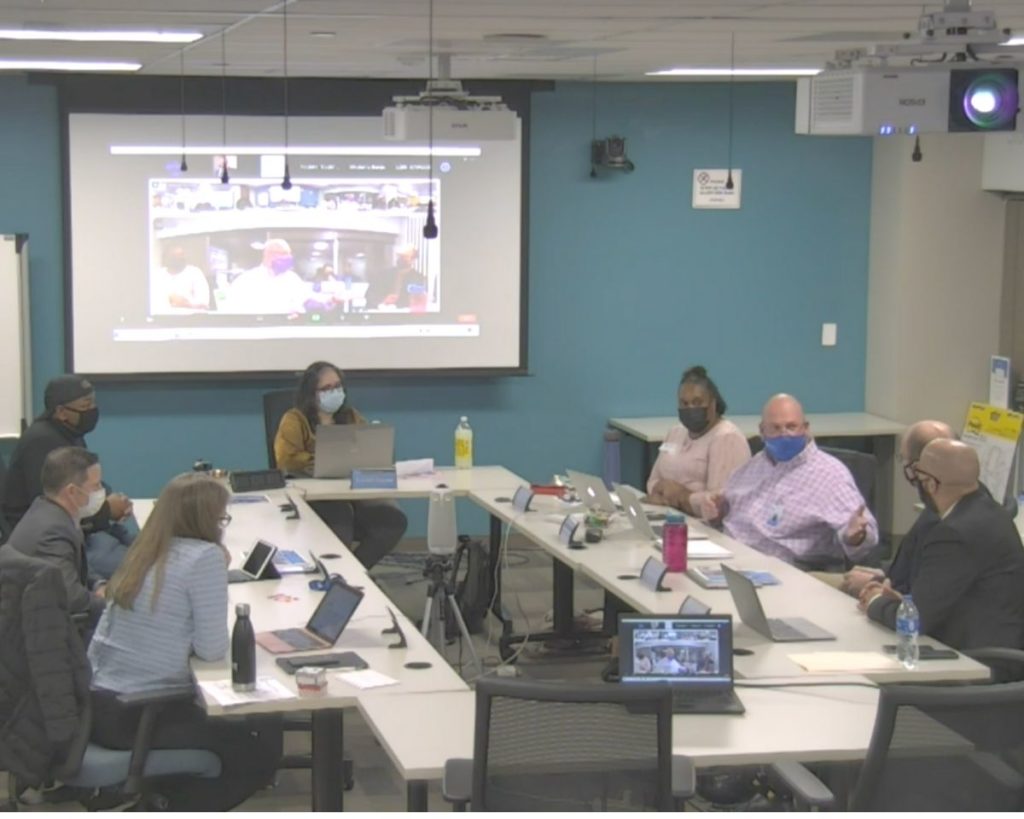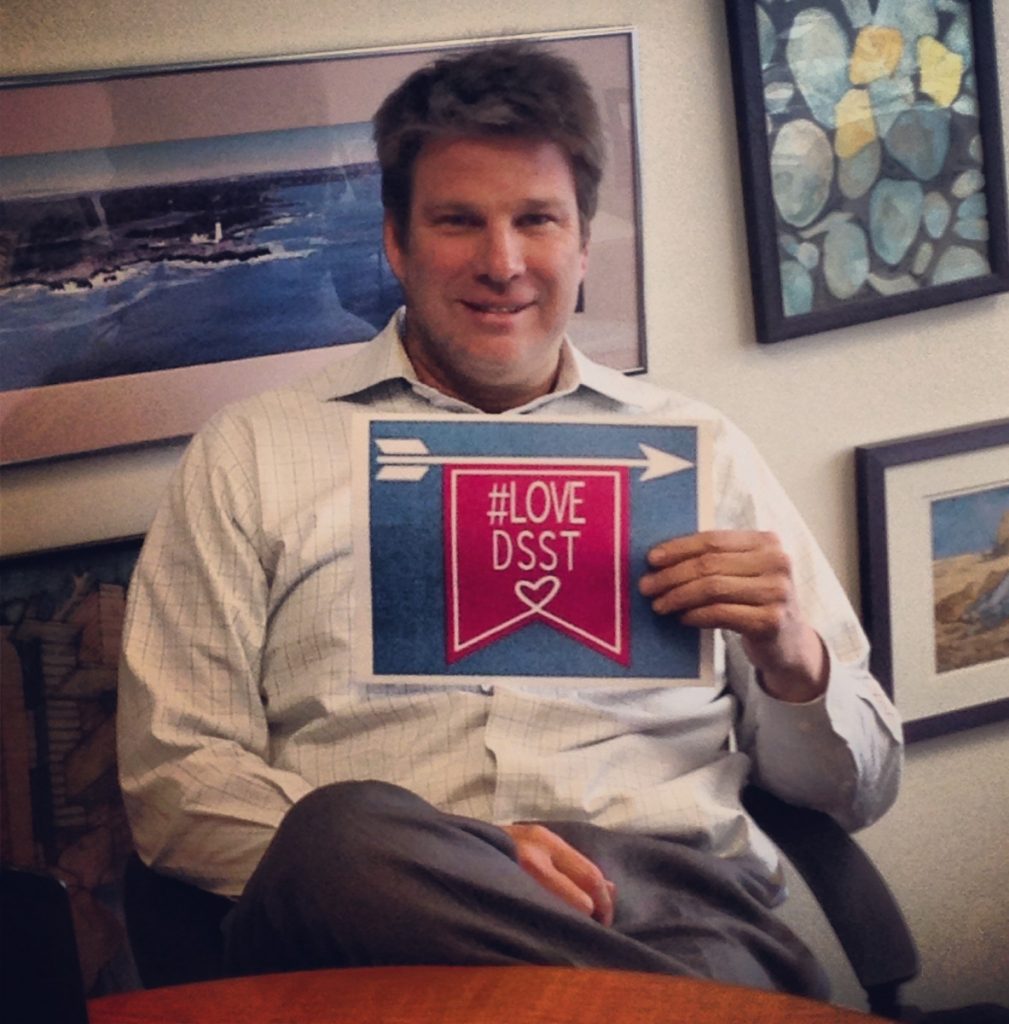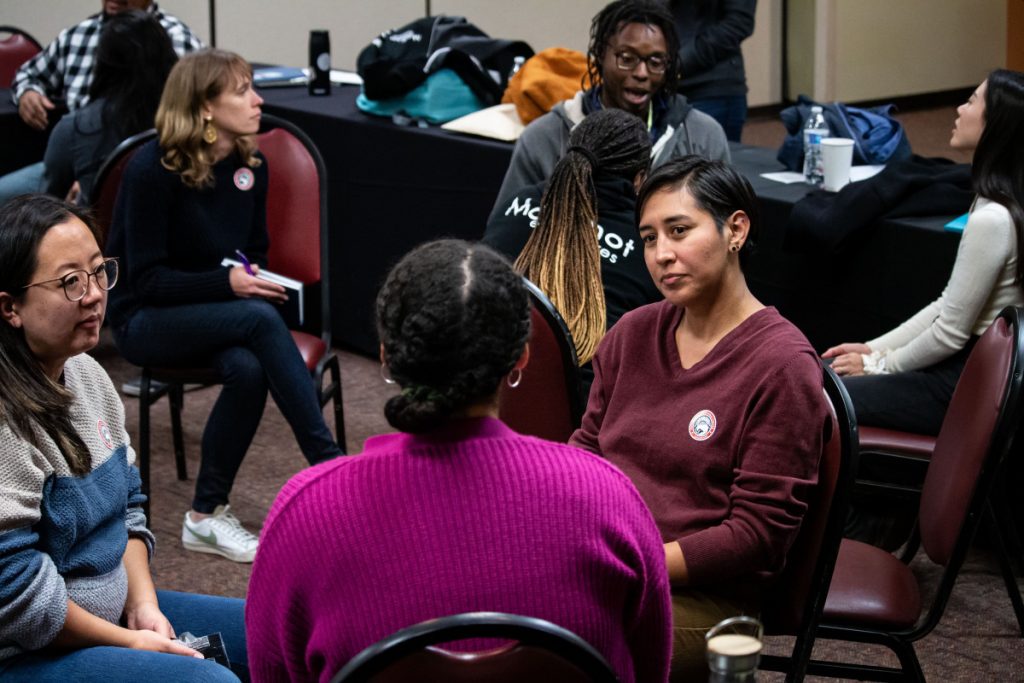Denver Public Schools Superintendent Alex Marrero’s contract extension through 2026 was a foregone conclusion once the DPS board announced Wednesday that it would be voting on the extension at last Thursday’s meeting.
What wasn’t as clear was whether the seven board members were united behind the plan. As it turns out, they weren’t.
The board voted 5-2 in favor of the extension, with board members Scott Baldermann and Brad Laurvick casting the dissenting votes. While the interpersonal dynamics that will help shape this board are still developing, remarks made by the two dissenters and supporter Scott Esserman, a vociferous defender of the extension, offer some early clues.
Laurvick and Baldermann offered different reasons for their opposition before casting no votes. Laurvick stressed repeatedly that he is a big fan and supporter of Marrero and his work since assuming the DPS helm July 1. What troubled him, he said, was the timing.
“This is an unusual vote for me this evening. I have never voted ‘no’ when I agree with something so much,” Laurvick said. “And the question that I’ve been sitting with since we’ve been having this conversation is about the timing – by this length at this time. Specifically at this time.”
Laurvick said he hopes Marrero remains superintendent long enough that his signature appears on Laurvick’s elementary school-aged children’s high school diplomas. But, he said, “something like this (extension), especially something this long, could have been a wonderful celebration for the superintendent after our first review of his work.”
Also, Laurvick said, the one-day turnaround from the announcement to the vote didn’t allow community members sufficient time to provide input.
Baldermann said he objected to the extension for a few reasons. One, he said, was that the board has said it wants to focus on results. If the board wants “to make a bold statement,” he said, “it needs to bring…bold results.”
Instead, he said, the board majority was approving a doubling of the contract length despite the fact that “the board can’t point to any results yet to justify the extension.”
Baldermann also said that the board was violating at least the spirit of its own policies by acting so quickly. He cited providing less than 48 hours for community feedback, and failing to provide “multiple public readings “ of a proposed change of this magnitude as examples.
Finally, Baldermann said that the strong demonstration of support for Marrero means that the board must adhere to its commitment to policy governance. This means, he said, “there is no excuse for any board member to directly involve themselves in district operations,” other than those specifically delineated in written “executive limitations.”
Esserman, elected last month, dismissed Laurvick and Baldermann’s concerns in an assertive statement.
“We’ve heard that this is a difficult decision and I have to tell you that for me this is not a difficult decision,” Esserman said, adding that it takes more than the two years of the original contract to make changes of the magnitude this board and Marrero want to make.
Esserman dismissed the complaints of people “who grouse about not having enough voice” in the decision. He said the extension was not about evaluation, but rather “ it’s about commitment. It’s about values. And it’s based on our students.”
Taking direct aim at Laurvick and Baldermann’s objections, Esserman also said he was troubled by inconsistencies in their complaints about a lack of transparency. After all, he said, the public wasn’t involved in the original negotiations with Marrero over his initial contract, which took place before Esserman was on the board.
“Was the public upset that they didn’t have input on that?” he asked.




